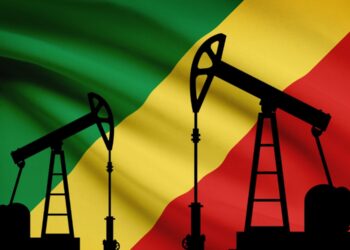Cameroon has remained resilient in the face of successive external shocks, and its real GDP growth is expected to reach 4 percent in 2023 and 4.3 percent in 2024, according to the International Monetary Fund (IMF).
“The economy has remained resilient in the face of a difficult external environment, including tight global financial conditions and high oil price volatility,” said IMF Mission Chief for Cameroon, Cemile Sancak, at the conclusion of virtual meetings with government officials focused on macro-critical policy measures to boost the country’s medium-term growth and resilience.
The meetings also discussed measures to enhance growth potential through structural transformation and address climate change. Cameroon’s headline 12-month inflation is expected to moderate from 7.2 percent in 2023 to 5.9 percent in 2024.
Ms. Sancak announced that the Cameroonian authorities and the IMF staff have reached a staff-level agreement on the economic and financial policies that could support the approval of the fifth reviews of the country’s programme under the Extended Credit Facility (ECF) and Extended Fund Facility (EFF) arrangements.
Once the review is approved by IMF Management and completed by the IMF Executive Board in December, Cameroon will have access to about $72.7 million in financing. IMF staff also concluded the 2023 Article IV consultation.
Ms. Sancak said that the stock of Cameroon’s public debt is expected to fall from 45 percent of GDP at end-2022 to below 42 percent at end-2023. Budget execution was supported by a significant increase in non-oil revenues.
However, it also faced pressures from fuel subsidy in 2022, which was substantially higher than expected and carried over to 2023. A substantial portion of subsidy is also likely to be carried over from 2023 to 2024.
“The authorities expressed their continued commitment to maintaining macroeconomic stability. In line with programme objectives, fiscal policy remains geared towards consolidation and strengthening the resilience of the public finances,” the IMF official said, noting that the authorities are committed to reducing the non-oil primary deficit further in 2024 to below 2 percent of GDP and the stock of public debt to 40 percent of GDP.
“The authorities have committed to incorporating adequate financing in the 2024 budget to cover substantial unpaid obligations from the execution of the 2023 budget and carried over to 2024. They recognise that budget execution in 2024 will continue to face large and unsustainable pressures from fuel subsidies unless steps are taken to moderate the costs,” Ms. Sancak further observed in her end of mission statement.
She added: “The authorities acknowledged the need for a more concerted effort to mobilise domestic non-oil revenues by widening the tax base, improve the prioritization, efficiency, and procurement of public expenditures, reduce spending through exceptional procedures, and settle unpaid obligations on a timely basis. It is important to strengthen the management of public enterprises, especially those supporting economic infrastructure. In this context, the mission emphasised the need for progress on restructuring SONARA (National Fuel Refining Company).”



























































